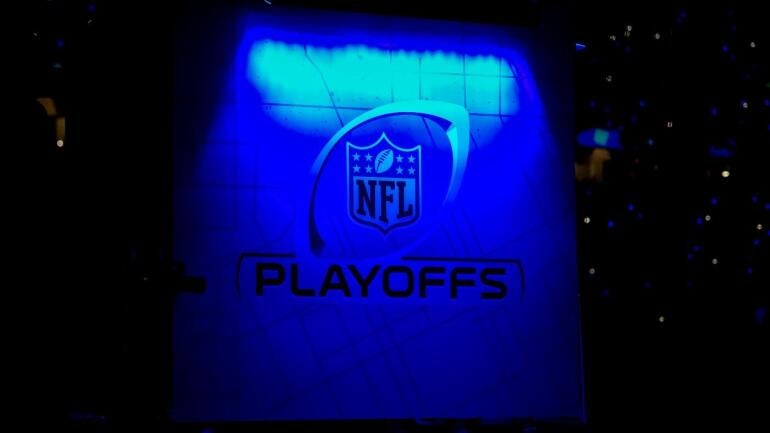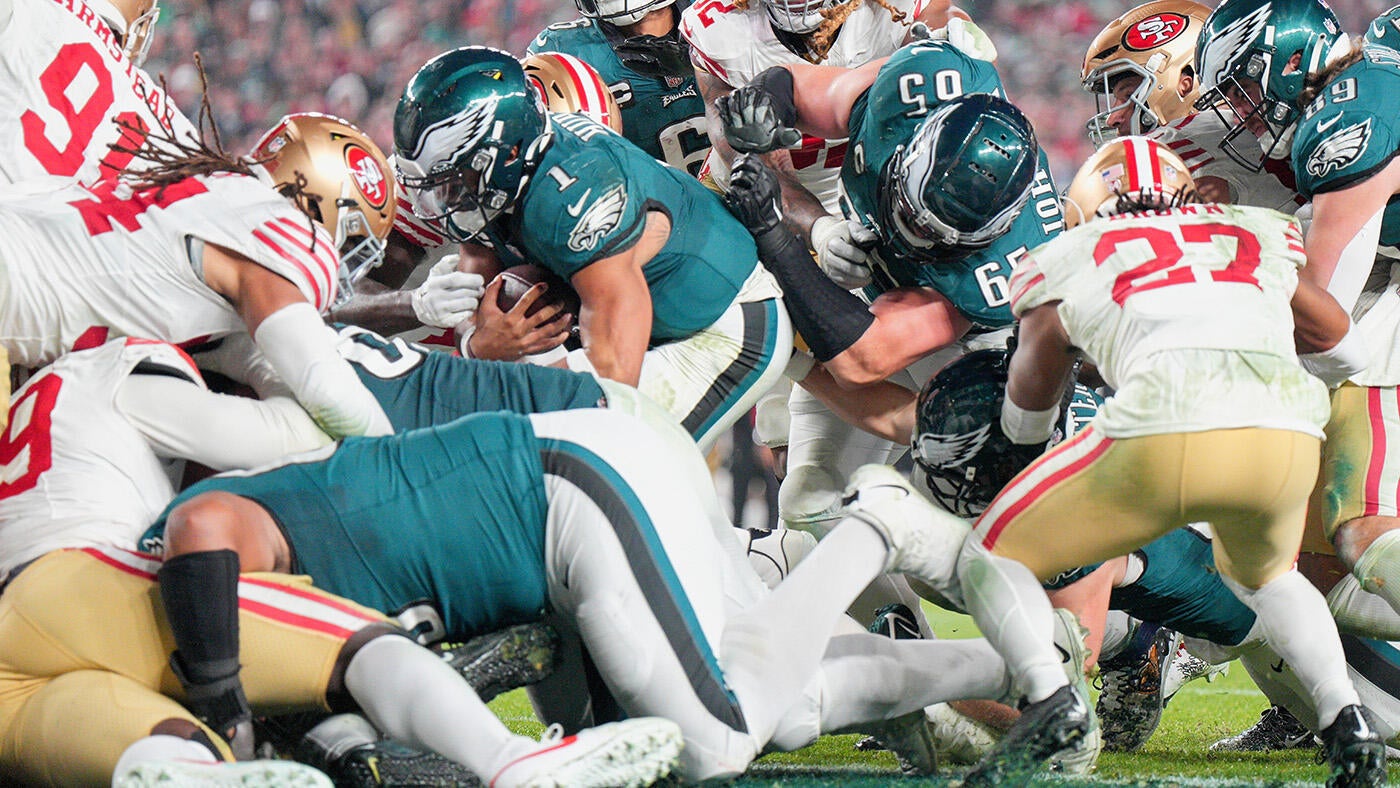

Change can be good. Change can be scary. Change can be controversial.
The NFL faced all three scenarios at the league owners meetings this week, as the Detroit Lions proposed a subtle — but radical — change to a seeding format that existed in its current iteration since the divisions realigned in 2002.
The playoff seeding is pretty simple. The four division winners in each conference get a home playoff game and are seeded one through four based on overall record. The three non-division winners with the best records earn wild-card berths, and are seeded five through seven. They face division winners on the road in the wild-card round of the playoffs.
Simple right? A team wins a division and gets rewarded with a home playoff game, no matter the record of the division champion.
The Lions proposed to change that seeding formula, seeding teams based on overall record instead of giving division champions a home playoff game. Under this proposal, the NFC playoff seeding would have been drastically different than last season.
2024 NFC playoff seeding
*Division champion
| Seed | Under 2024 format | If Lions proposal passed |
|---|---|---|
|
1 |
Lions (15-2)* |
Lions (15-2)* |
|
2 |
Eagles (14-3)* |
Eagles (14-3)* |
|
3 |
Buccaneers (10-7)* |
Vikings (14-3) |
|
4 |
Rams (10-7)* |
Commanders (12-5) |
|
5 |
Vikings (14-3) |
Packers (11-6) |
|
6 |
Commanders (12-5) |
Buccaneers (10-7)* |
|
7 |
Packers (11-6) |
Rams (10-7)* |
The playoff matchups would have been drastically different based on the reseeding, with two division champions having to play a road game in the wild-card round rather than hosting a home game. Teams would still be reseeded after the wild-card round if a higher seed won, with the No. 1 seed facing the highest seed remaining in the divisional round (the No. 1 seed gets the lone bye in the playoffs).
The playoff format wouldn’t change, but the seeding would have. The Lions pulled the proposal before it got to a vote, a sign they weren’t going to get the 75% of votes needed from the owners to pass.
The proposal could be revisited in the future, perhaps in 2026 or when the league goes to an 18-game schedule. But the current seeding format isn’t broken, and the NFL didn’t have to vote on potentially changing the landscape of divisions as we know it.
Divisions should still matter
The NFL created the eight-division format in 2002 for convenience and geographical proximity. Before that, the league had six divisions with anywhere from four to six teams in each.
The NFL faced a competitive imbalance but had an opportunity to fix it when the Houston Texans joined as the league’s 32nd team. The result was eight divisions with four teams each — simple and effective. The league also preserved rivalries and kept historic matchups in place (Dallas asked to remain in the NFC East instead of going by geographic location).
The only change in the playoff seeding with realignment in the divisions? The non-division winner with the best record no longer hosted a playoff game as the No. 4 seed, as that was awarded to a division champion. Since the NFL went to the 12-team playoff format in 1990, division winners earned home games in the first round.
Winning a division always had incentive, whether it was a home game in the first playoff game or a bye in the opening round. When the 10-team playoff format was instituted in 1978, the wild-card teams played each other in the opening round — and division winners earned a week off. The playoffs have expanded twice since then, with all division winners rewarded with a home game instead of the lowest division winner playing on the road in their first playoff game (which was the case from 1978 until 1989).
There always was incentive for winning the division, knowing the reward was a playoff spot and a home playoff game — no matter the record. Winning the division matters because of the opportunity to host a home playoff game.
Some divisions were better than others, but that’s also a result of a schedule rotation that creates a schedule imbalance and the small number of teams in a division (four). The schedule became even more imbalanced once the 17th game was added in 2021, which was why there have been five division winners hosting playoff games in the wild-card round with a worse record than their opponent (division winners are 4-1 in those games).
Division winners need to be rewarded for something besides just making the playoffs. The T-shirt games have more merit when the home playoff game is the reward.

The NFL isn’t the NBA
When the NBA realigned from two to three divisions in 2004, division champions were guaranteed top-three seeds. A division runner-up could do no better than the fourth seed, meaning there was the possibility the teams with the two best records in the conference could meet in the conference semifinals.
To avoid that scenario, the NBA changed its playoff format again in 2007 so that division champions were only guaranteed top-four seeds, meaning that if a non-division champion had the second-best record, they would be the No. 2 seed (with the other two division champions earning seeds Nos. 3 and 4).
Of course, that wasn’t good enough for the NBA. They changed the playoff seeding again in 2016, where the teams with the eight-best records in each conference received playoff berths — with no automatic berths or guaranteed top-four seed placement for division champions. A team could win the division and not make the playoffs.
What is the point of divisions then? Why does the NBA have them? Should the New York Knicks be punished for having to play the Boston Celtics more than anyone else because they are in the same division? A division that only exists for scheduling and geographical purposes?
The NFL would be going down a slippery slope if division winners couldn’t receive a home playoff game. Is it fair for the Dallas Cowboys to get punished for playing the Philadelphia Eagles twice while their NFC North counterparts only play them once? Again, what’s the point of having divisions if they are only around for scheduling purposes?
Geographic location also doesn’t matter anymore since the NFL plays several games a year outside the United Status, which will soon be up to 16 in a few years. One conference also plays eight home games while the other plays nine, showing the 17-game schedule imbalance.
If the NFL wants divisions — and their rivalries — to still matter, the league needs to reward division champions with more than a playoff spot. The home playoff game gives teams a real incentive to win the division.
Sour grapes?
Home playoff games certainly matter in the NFL. Just look at the wild-card matchups created from the 14-team playoff format in which the non-division winner has a better record than the division winner — the team that’s hosting the game.
This has happened five times over the last two seasons, with the division winner going 4-1. What about since the playoff format expanded to 14 teams in 2020?
| Year | Division winner (record) | Wild-card team (record) | Winner |
|---|---|---|---|
|
2020 |
Washington (7-9) |
Buccaneers (11-5) |
Buccaneers |
|
2022 |
Jaguars (9-8) |
Chargers (10-7) |
Jaguars |
|
2022 |
Buccaneers (8-9) |
Cowboys (12-5) |
Cowboys |
|
2023 |
Texans (10-7) |
Browns (11-6) |
Texans |
|
2023 |
Buccaneers (9-8) |
Eagles (11-6) |
Buccaneers |
|
2024 |
Texans (10-7) |
Chargers (11-6) |
Texans |
|
2024 |
Buccaneers (10-7) |
Commanders (12-5) |
Commanders |
| 2024 | Rams (10-7) | Vikings (14-3) | Rams |
The 5-3 record for division winners in the wild-card round isn’t as lopsided as one might think, so where’s the complaint? Is it because division winners have four of those five wins over the last two years? Is it because a 14-win football team can’t take care of a seemingly inferior opponent in their first playoff game?
Or is it because the team that proposed the reseeding (Lions) couldn’t beat the 12-win team (Commanders) that had to face a division champion on the road in their first playoff game? That Commanders team ended up beating another division champion (Lions) on the road, despite Detroit having the No. 1 seed and 15 days rest in preparation for them. Remember, with the reseeding via the Lions’ proposal — Detroit may have avoided Washington in the divisional round.
Home playoff games do matter, which is why it’s all the more important for division champions to be awarded a home playoff game. As the data shows, road teams with a better record can beat a division champion in the first playoff game. The results aren’t as lopsided as what’s led to believe.
The NFL playoff system doesn’t need tinkering or reseeding. The format is fine the way it is, and divisional championships still have an impact on the game.
If the NFL does reseed someday, the league might as well eliminate divisions altogether.
This news was originally published on this post .








Be the first to leave a comment